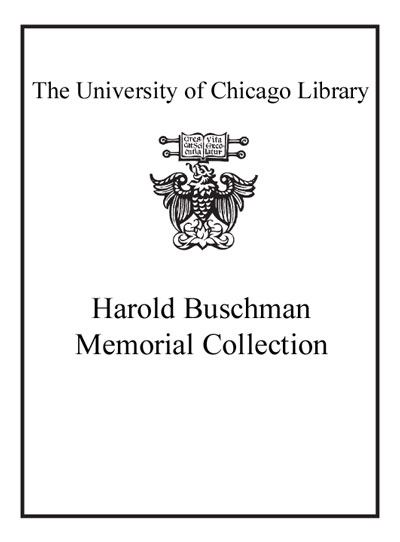Disavowing disability : Richard Baxter and the conditions of salvation /
Saved in:
| Author / Creator: | McKendry, Andrew, author. |
|---|---|
| Imprint: | Cambridge, United Kingdom ; New York, NY : Cambridge University Press, 2021. ©2021 |
| Description: | 80 pages ; 23 cm. |
| Language: | English |
| Series: | Elements in eighteenth-century connections Cambridge elements. Elements in eighteenth-century connections. |
| Subject: | |
| Format: | Print Book |
| URL for this record: | http://pi.lib.uchicago.edu/1001/cat/bib/12709764 |
MARC
| LEADER | 00000cam a2200000Ii 4500 | ||
|---|---|---|---|
| 001 | 12709764 | ||
| 008 | 210506t20212021enk b 000 0 eng d | ||
| 005 | 20220322155549.8 | ||
| 035 | 9 | |a (GOBI)99990120330 | |
| 040 | |a YDX |b eng |e rda |c YDX |d UKMGB |d OCLCO |d OCLCF |d YDX |d OCLCO |d OKU | ||
| 020 | |a 1108823122 |q paperback | ||
| 020 | |a 9781108823128 |q paperback | ||
| 020 | |z 9781108910880 |q electronic book | ||
| 020 | |z 9781108913515 |q electronic book | ||
| 035 | |a (OCoLC)1249797763 | ||
| 050 | 4 | |a BT732 |b .M35 2021 | |
| 082 | 0 | 4 | |a 261.8324 |2 23 |
| 100 | 1 | |a McKendry, Andrew, |e author. | |
| 245 | 1 | 0 | |a Disavowing disability : |b Richard Baxter and the conditions of salvation / |c Andrew McKendry. |
| 264 | 1 | |a Cambridge, United Kingdom ; |a New York, NY : |b Cambridge University Press, |c 2021. | |
| 264 | 4 | |c ©2021 | |
| 300 | |a 80 pages ; |c 23 cm. | ||
| 336 | |a text |2 rdacontent | ||
| 337 | |a unmediated |2 rdamedia | ||
| 338 | |a volume |2 rdacarrier | ||
| 490 | 1 | |a Elements in eighteenth-century connections | |
| 504 | |a Includes bibliographical references (pages 64-80). | ||
| 505 | 0 | |a Contexts and connections -- Enabling "every man" -- Disputing disability, conditioning salvation -- Diversity, inclusion(ism), discipline -- Melancholy, means, ends. | |
| 520 | |a Disavowing Disability examines the role that disability, both as a concept and an experience, played in seventeenth-century debates about salvation and religious practice. Exploring how the use and definition of the term 'disability' functioned to allocate agency and culpability, this study argues that the post-Restoration imperative to capacitate 'all men'--not just the 'elect'--entailed a conceptual circumscription of disability, one premised on a normative imputation of capability. The work of Richard Baxter, sometimes considered a harbinger of 'modernity' and one of the most influential divines of the Long Eighteenth Century, elucidates this multifarious process of enabling. In constructing an ideology of ability that imposed moral self-determination, Baxter encountered a germinal form of the 'problem' of disability in liberal theory. While a strategy of 'inclusionism' served to assimilate most manifestations of alterity, melancholy presented an intractability that frustrated the logic of rehabilitation in fatal ways. This title is also available as Open Access on Cambridge Core. | ||
| 600 | 1 | 0 | |a Baxter, Richard, |d 1615-1691. |
| 600 | 1 | 7 | |a Baxter, Richard, |d 1615-1691. |2 fast |0 (OCoLC)fst00001360 |
| 650 | 0 | |a Salvation |x Christianity |x History of doctrines |y 17th century. | |
| 650 | 0 | |a Disabilities |x Religious aspects |x Christianity. | |
| 650 | 0 | |a Disabilities |x History |y 17th century. | |
| 650 | 7 | |a Disabilities. |2 fast |0 (OCoLC)fst00894633 | |
| 650 | 7 | |a Disabilities |x Religious aspects |x Christianity. |2 fast |0 (OCoLC)fst02006308 | |
| 650 | 7 | |a Salvation |x Christianity |x History of doctrines. |2 fast |0 (OCoLC)fst01104427 | |
| 648 | 7 | |a 1600-1699 |2 fast | |
| 655 | 7 | |a History. |2 fast |0 (OCoLC)fst01411628 | |
| 776 | 0 | 8 | |i Online version: |a McKendry, Andrew. |t Disavowing disability. |d Cambridge, United Kingdom : Cambridge University Press, 2021 |z 9781108913515 |w (OCoLC)1260468461 |
| 830 | 0 | |a Cambridge elements. |p Elements in eighteenth-century connections. | |
| 929 | |a cat | ||
| 999 | f | f | |s ce0a403c-4df4-4621-81fa-467793f12fc2 |i 299fe675-7fc2-4592-b2b6-a9f5bcc7e160 |
| 928 | |t Library of Congress classification |a BT732.M35 2021 |l JRL |c JRL-Gen |i 12845849 | ||
| 927 | |t Library of Congress classification |a BT732.M35 2021 |l JRL |c JRL-Gen |e BUSC |b 117458304 |i 10370275 | ||

